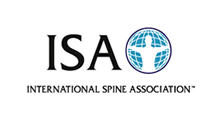
Spine Disorders
|
WHEN TO SEE A SPINE SPECIALIST You should
seek the advice of a spine specialist if neck or back pain persists for more
than two weeks or if it is progressive in intensity and/or distribution. You
should seek immediate healthcare attention if neck or back pain occurs as the
result of an injury or if it is associated with serious illness and/or a high
fever. Additional signs and symptoms which warrant prompt medical attention
include:
SCREENING AND DIAGNOSIS Children who
develop discitis usually do not have symptoms of systemic illness. They may not
have a classic fever or an elevated white blood cell count. However, a test
referred to as the erythrocyte sedimentation rate (ESR) is usually elevated. Lateral
radiographs of the involved area of the spine may reveal intervertertebral disc
space narrowing with erosive changes of the vertebral end plates of the adjacent
vertebrae. A nuclear bone scan may help localize a lesion which is difficult to
identify through clinical examination. A bone scan may not become positive for
a week after the onset of discitis. Some bone scans will present with a false
negative result so a negative bone scan does not completely exclude the possibility
of infectious discitis. Magnetic resonance imaging (MRI) is the most reliable
early confirmatory imaging study. It is very helpful at discovering an active disc
space infection if the region of the suspected lesion is narrowed down to a
particular area of the spine. PROGNOSIS The
prognosis for non-inflection disc inflammation is good. The prognosis for
infectious discitis is good if it is identified and treated early. COMPLICATIONS The
complications of infectious discitis include systemic infection and spread
locally to other spinal tissues. It could lead to the development of
meningitis. Local complications include osteomyelitis within the adjacent
vertebrae. The disc and the adjacent endplate may be injured, initiating a
degenerative process which could compromise normal disc function at the
involved level. |
















